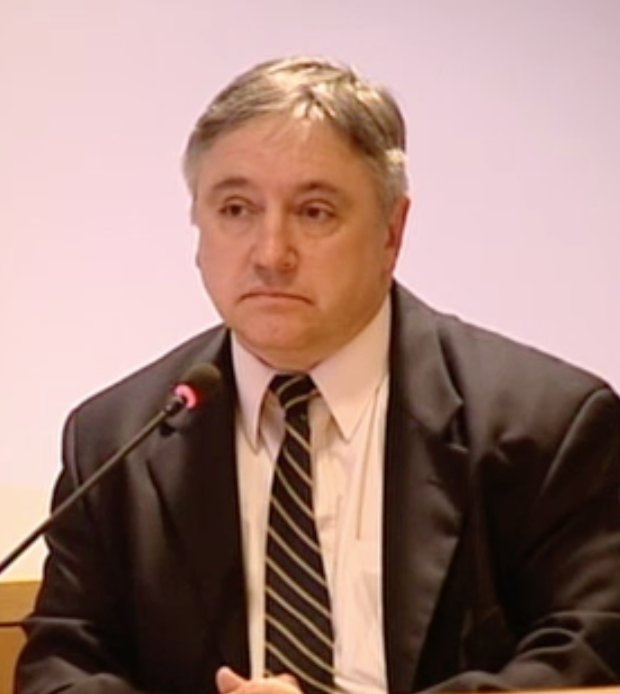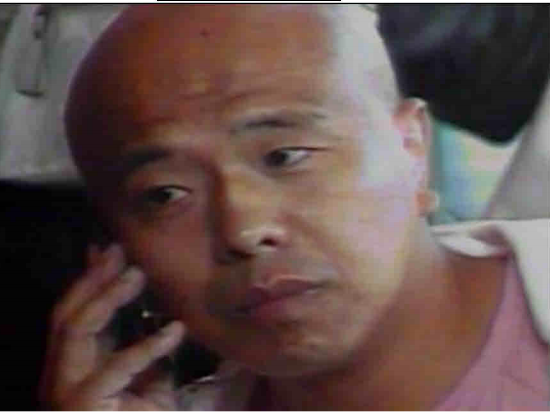
Bob Mackin
In the final months of his life, former B.C. RCMP spokesman Pierre Lemaitre applied to Veterans Affairs Canada for disability benefits. He could no longer work after February 2013, because of anxiety, anger and post-traumatic stress disorder.
At the B.C. Coroner’s inquest into Lemaitre’s July 29, 2013 suicide, the letter he wrote to accompany the Quality of Life Questionnaire was entered as evidence. The undated, seven-page letter describes incidents in his career that contributed to his demise and offers a glimpse into the unseen workplace hazards of policing.
“I have for several years been suffering from severe depression, severe manic mood swings and anxiety attacks,” it begins.
Lemaitre described his 1991 posting in Bella Coola, B.C., where, as a constable, he was called to investigate the discovery of a woman’s nude body.

Pierre Lemaitre
During the investigation, he realized that he had had contact with the woman, who was often reported as a missing person because she had difficulty coping. Lemaitre wrote that he eventually located the suspect, whose confession “left me disturbed than an innocent girl could be victimized so violently and cruelly.”
The killer beat and raped the defenseless female. The autopsy revealed she drowned in her own blood.
“It seemed to me that this monster had killed a quiet and defenseless angel,” Lemaitre wrote. “After three straight days of work on the investigation, I was exhausted and empty. There was no critical incident stress debriefing. Years went by when I kept thinking of my first homicide investigation and how [censored] had died needlessly at the hands of an evil predator.”
During his posting in Cranbrook, he investigated how a possessive boyfriend threw his girlfriend over a bridge to her death.
“I saw the parallels at the time of another young woman, victimized at a young age, and robbed of her life. I couldn’t understand why the rest of society just carried on almost in a selfish matter, unaffected by the death of another human being. It seemed like the victim’s family and close friends were the only ones who cared. I keep wondering how she felt as she plummeted to the [censored].”
While working as media spokesman in Coquitlam, local children found a naked woman’s body face down in the Pitt River. A dozen people had heard a young woman scream around 5:30 a.m. “The woman’s voice was pleading for help, asking someone to stop. Not one citizen looked outside, or called the police.”
The victim’s mother reported her daughter missing, after she had been called in to work early the next morning, when it was unusually foggy.
“Every time I see fog, I keep having visions of a young woman’s silhouette standing in the fog. I see the silhouette fighting with someone, screaming for help as she is overpowered and dragged away… [I] can’t understand why this young and kind girl was raped and killed so violently. It will never make sense to me. Never.”
He recounted a busy summer of 2003 after he had been transferred to the Strategic Communications Group at regional headquarters in Vancouver.
Near Nakusp, several French-Canadian kayakers had overturned in a river. Their bodies never found. Lemaitre wrote that the father of one victim was consoled by one of the rescue divers, who had given him rocks from the bottom of the river as a token of remembrance. The father broke down and explained to the diver and Lemaitre that his adventurous son had always brought rocks home from all the places that he had travelled.
Lemaitre described the nightmares he had, of the kayakers’ voyage turning into catastrophe, their spirits leaving their bodies and watching the search operation from above.
“When I drive along the Fraser Valley and see Mount Baker in all its splendour, I keep thinking of how many other spirits are finding solace in the high peaks that seem immune to the conflict and stress below.”
Dispatched to the Okanagan during the wildfires, he wrote that a female reporter approached him and a female constable. She accused Lemaitre’s direct line supervisor of making several inappropriate sexual comments. The supervisor had suggested the reporter gained her story leads from sources while she was engaged in sexual activity.
“I felt disloyal having to do this, but our code of conduct and my consciousness would not allow me to simply brush her concerns aside.”
It came with a price. Lemaitre was transferred immediately and warned not to dispute the move. An internal investigation months later led to an apology. Lemaitre accepted a posting in Burnaby as the media relations officer.
The letter mentioned how he fled an Oct. 17, 2004 house fire with his wife. They both suffered non-life-threatening burns.
Back at Strategic Communications in Vancouver, and ready for duty around the clock, Lemaitre was called at 4:30 a.m. Oct. 14, 2007, and tasked to Richmond. A man had died after a 1:15 a.m. disturbance at Vancouver International Airport. He was later identified as Polish visitor Robert Dziekanski.
The information he was supplied about Dziekanski being violent was later disproven by an eyewitness video. The head of the Integrated Homicide Investigation Team refused to let Lemaitre correct the record.
“For weeks and months the media publicly accused me of lying and misleading the public. This affected me deeply on a personal and professional level,” he wrote.
“My reputation had been ruined and besmirched. I couldn’t watch the news, read the news or listen to the news on the radio anymore. Every time my phone rings at work or at home, my heart races and I get anxiety attacks. I get furious and angry in two seconds. I am extremely defensive with my co-workers and my wife. I don’t see friends anymore. I have given up my hobbies showing dogs, participating in motorcycle outings with a motorcycle club. I hate to go out in public. I hate shopping. I fear that people recognize me and point me out.”
Bouts of depression lasted weeks, interrupted by days of feeling on a high. “I feel super happy. Then I crash.”

Pierre Lemaitre at the Braidwood Inquiry (CBC)
He could not do usual household activities, shop or do errands. He was unable to work his regular occupation, or effectively participate in recreational or community activities. He was unable to maintain usual day-to-day family responsibilities or maintain personal relationships.
“I look after my wife who is physically handicapped and I have no patience for her. I fly off in fits of anger for no reason. It has put great pressure and strife on my relationship. I cannot do this without being on my anti-depressant medication.”
At the inquest on Nov. 26, widow Sheila Lemaitre testified that she had helped him write the letter about the emotional damage, bullying and betrayal he had suffered on the job.
“As police officers we see horrendous things and walk into family situations that are painful and we carry the memories and we carry the burden of the times of memories staying with us,” Sheila Lemaitre testified. “But Pierre was always able to as the vast majority of us do, walk away from those things, carry them, be a heavier person for it, on our brain, but able to get back on with life, and able to enjoy life and able to interrelate. Still, even though you have horrendous things happening to you, even though you have times when you’ll remember things and things will flash back, when you might have dreams about them, you might think about them.
“These were things that you kind of figure, when you sign up, you might end up being exposed to. What we have difficulty with is when we’re beset with, lack of a better term, attacks from within… it’s when you don’t have that internal support, that the people you work with are the source of that pressure and pain, that’s when it’s far more difficult to walk away from… that’s when life becomes difficult. That’s when Pierre could no longer pick himself up, that’s when he couldn’t get up again.”
Are you in distress? Help is one phone call away.
Support theBreaker.news for as low as $2 a month on Patreon. Find out how. Click here.
VA Letter Redacted by BobMackin on Scribd











